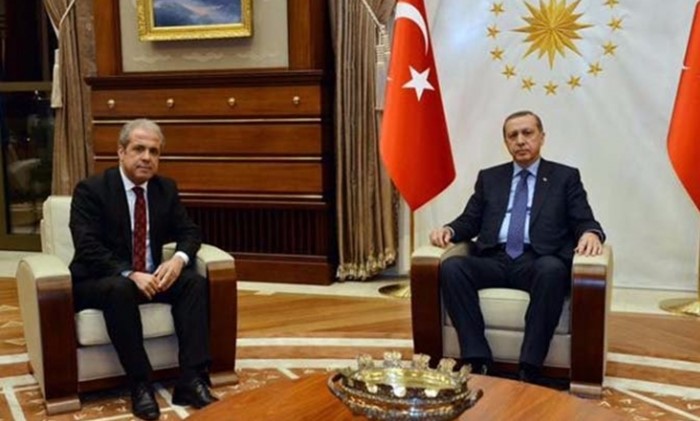Ruling Justice and Development Party (AKP) deputy Şamil Tayyar said in order to find Adil Öksüz, one of the prime suspects in a failed coup attempt in Turkey on July 15, the US Consulate General in İstanbul should be searched, claiming that the coup attempt was a NATO operation.
“His [Öksüz’s] contact with the US Consulate General in İstanbul [a phone call] was mentioned. There are some doubts. It would be better if the US Consulate were searched in order to get rid of doubts. They may not open their gates to police or intelligence officials, but a delegation approved by them could search the consulate building,” Tayyar said in an interview published by the pro-government Akşam daily on Monday.
Öksüz was reported to have been caught while trying to escape from Akıncı Air Base in Ankara on the morning of July 16, 2016, but he was released a short while later by a court in Sincan. He has been at large since then.
In March, it was reported that the US Consulate General in İstanbul called Öksüz six days after the failed coup attempt.
The US Embassy in Ankara said in a statement at the time that the US Consulate General in İstanbul called Öksüz on July 21, 2016 after Turkish police contacted the US mission in Turkey the same day for help in preventing him from leaving the country.
“We then revoked his US visa and, as required by US law, tried to call him to inform him of the cancellation. Far from being suspicious, the call from the Consulate General illustrates the close US-Turkish law enforcement cooperation following the coup attempt,” the US Embassy statement read.
Tayyar listed three possibilities about the whereabouts of Öksüz: “He could have been killed. He could have fled abroad. He could have been hiding in a safe place in Turkey. He could have been hiding in a consulate.”
According to the AKP deputy, the failed coup attempt was an operation by NATO.
“July 15 was a NATO operation. NATO has mainly used FETÖ [a derogatory terms used for Gülen movement by government] members, but there are secularists and NATO supporters among them [putschists] as well. Their common enemy is [President Recep Tayyip] Erdoğan,” added Tayyar.
Underlining that followers of the Gülen movement have been dismissed from state institutions on a large scale, Tayyar also called for the purge of secularists and NATO supporters from the state:
“Let’s call them Kemalists. They are also a risk for our democracy. I do not say for all, but I think that some of them are controlled by NATO. (…) That is the reason why the states should not only be cleansed of FETÖ members but also of NATO supporters. The risk of a coup will be there as long as we do not cleanse them from the state,” he claimed.
Immediately after the putsch, the AKP government along with President Erdoğan pinned the blame on the Gülen movement.
Fethullah Gülen, who inspired the movement, strongly denied having any role in the failed coup and called for an international investigation into it, but President Erdoğan — calling the coup attempt “a gift from God” — and the government initiated a widespread purge aimed at cleansing sympathizers of the movement from within state institutions, dehumanizing its popular figures and putting them in custody.
As part of a witch-hunt targeting people linked to the Gülen movement, 154,694 individuals have been detained and 50,136 have been jailed since July 15 in Turkey, the state-run Anadolu news agency reported on May 28.
Contrary to accusations made by President Erdoğan and the Turkish government, the Foreign Affairs Committee of the UK Parliament concluded in March that Gülen and the movement he inspired as a whole were not behind the failed coup in Turkey.
The UK Parliament statement came a week after Germany rejected Erdoğan and the Turkish government’s accusations against the Gülen movement about July 15.
The head of Germany’s Federal Intelligence Service (BND), Bruno Kahl, said Turkey could not convince them that US-based Turkish-Islamic scholar Gülen was behind the failed coup in July.
Similarly, Devin Nunes, chairman of United States House Permanent Select Committee on Intelligence, said he has not seen any evidence showing Gülen’s involvement in the putsch in Turkey.
In addition, a report prepared by the EU Intelligence Analysis Centre (IntCen) revealed that the coup attempt was staged by a range of Erdoğan’s opponents due to fears of an impending purge.

